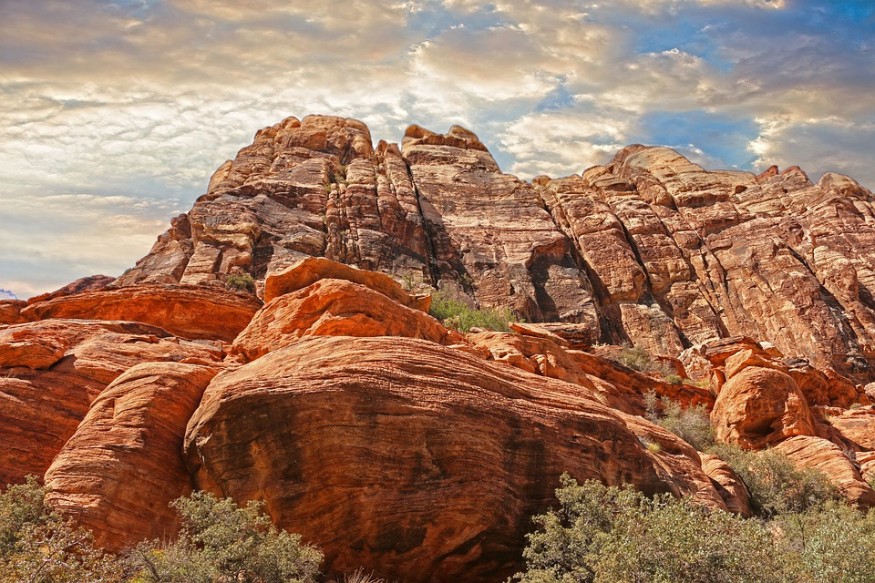A Clark County lands bill submitted in the House and Senate on Wednesday will preserve 2 million acres of wilderness, extend Red Road Canyon National Conservation Area, and give the county and Las Vegas valley cities 30,000 acres of land construction and affordable housing.
Sen. Catherine Cortez Masto, D-Nev., is chairwoman of the Senate Energy and Natural Resources subcommittee on federal lands, forestry, and mining, which will oversee the bill's passage.

Rep. Dina Titus, D-Nev., introduced similar bills in the House.
Gov. Steve Sisolak, Sen. Jacky Rosen, Rep. Mark Amodei, the only Republican, and Rep's delegation Steven Horsford and Susie Lee all back the bill.
Related Article: Biden To Overhaul Offices to Promote Environmental Justice
Land Distribution

The majority of the 2 million acres would be in the Desert National Wildlife Refuge, but only 51,000 acres would be in the Red Rock Canyon National Conservation Area. According to Cortez Masto, another 41,000 acres of public property will be kept in trust for the Moapa Band of Paiutes.
Cortez Masto told the Review-Journal, "We've been working on this for four years now."
The pandemic and its impact on the urban environment, according to Cortez Masto, "have really shone a light on the problems we have with affordable housing."
Following discussions with Clark County, towns, and others, a strategy for potential development in the area was created, balancing preservation and housing as the region's population grows. Cortez Masto explained, "It's about how we handle success in a sustainable way."
It is the "largest environmental bill in Nevada history," according to Titus.
The bill will show that "it is possible to handle Clark County's population increase while prioritizing affordable housing and the environment," according to Titus.
Criticisms
Conservationists, on the other hand, slammed the bill as a scheme to continue obsolete growth that doesn't save water or fix climate change.
Kyle Roerink, executive director of the Great Basin Water Network, said, "This is a sprawl bill." According to Roerink, the bill fails to account for depleting Colorado River flows and increased water demand for potential uses.
Cortez Masto and other lawmakers collaborated with the county to create land for planned construction and affordable housing, leveraging revenue from federal land purchases under the Southern Nevada Public Land Management Act, a federal initiative that was cut from the Trump administration's budget.
According to Patrick Donnelly, Nevada state director for the Center for Biological Diversity, the bill is more acceptable than other recent bills, but "we strongly disagree with the idea of designating wilderness as a quid pro quo for selling off public lands."
According to Donnelly, the House and Senate bills encourage sprawl growth, which is "unsustainable in our desert ecosystem." This is more of the same, and we need change."
Supporters
Supporters of the measure, on the other hand, argue that it represents plans for development planning.
"Everyone in Nevada understands that lands bills are a reality and that they can be effective instruments for economic growth, natural resource protection, and conservation," Amodei said.
Annette Magnus of the party Fight Born Progress, on the other hand, was a supporter of the bill.
"We've had the senator listen to people in our neighborhoods and make necessary revisions to the bill's initial versions to take it in a positive direction based on neighborhood feedback," Magnus said.
"We have focused on public lands issues and saving rare sites like Red Rock for several years, and we are pleased with many provisions of this bill that include greater safeguards for important areas across Southern Nevada," Magnus said.
Other Initiatives
"We still agree that the ability to use funds from the Southern Nevada Public Lands Management Act for climate change reduction activities is a key piece of this legislation," she said.
According to Cortez Masto, the bill allows Clark County to use water more effectively and produce renewable energy.
Cortez Masto said that she intends to pressure allies in order to get the bill out of her committee and onto the Senate floor.
ALSO READ:
NDC Synthesis Reports Showed How Far Countries Are From Meeting Paris Agreement's Climate Goals
Common Every Day Activities that Help Mitigate Climate Change!
For more environmental news, don't forget to follow Nature World News!
© 2025 NatureWorldNews.com All rights reserved. Do not reproduce without permission.





